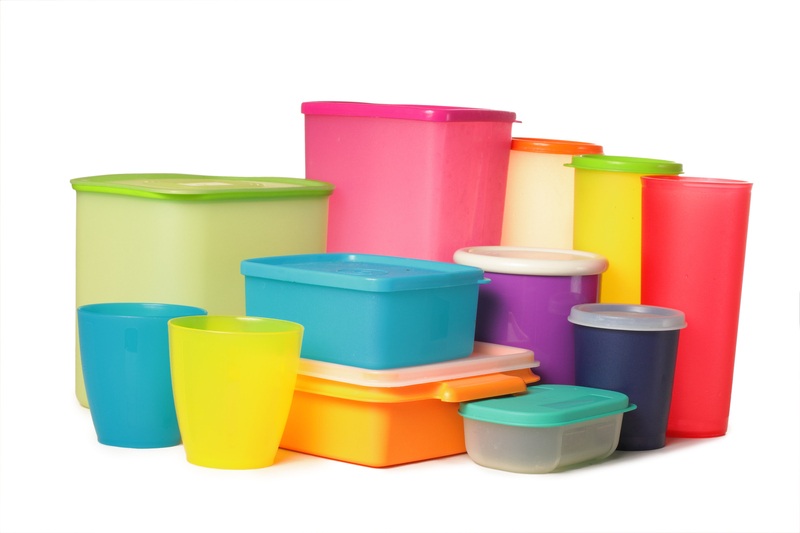How De-cluttering Reduces Stress
Posted on 26/05/2025
In a world that's constantly bombarding us with information and letting us accumulate more things than we need, de-cluttering has emerged as a powerful tool to improve mental well-being. This article will delve into how de-cluttering can reduce stress, offering tangible tips, and weighing pros and cons. Let's explore this transformative practice in-depth.
The Psychological Impact of Clutter
Clutter can significantly impact your mental health. It creates an environment of chaos that can make you feel overwhelmed, anxious, and stressed. When your physical space is cluttered, your mind can feel cluttered too. This chaos makes it difficult to focus, thus leading to decreased productivity and increased stress levels.

How De-cluttering Reduces Stress
De-cluttering helps minimize the sensory overload and distractions that clutter brings, creating a more serene and manageable environment. Here are some ways in which de-cluttering helps in reducing stress:
Creating a Sense of Control
When you de-clutter, you regain a sense of control over your environment. This empowerment can reduce feelings of helplessness and stress. You're actively taking steps to improve your surroundings, which can have a significant uplifting effect on your mood.
Improving Focus and Productivity
A clutter-free environment enables you to focus more effectively. When distractions are minimized, your brain can concentrate better on tasks, leading to increased productivity. This surge in productivity can foster a sense of accomplishment and reduce stress.
Enhancing Mental and Emotional Clarity
As you sort through your belongings, deciding what to keep and what to discard, you're also clarifying your mental and emotional priorities. This process can reduce stress by helping you understand what truly matters to you, leading to a more purposeful and less stressful life.
Encouraging Better Physical Health
A clutter-free space promotes better physical health. Clutter can create an environment ripe for dust, mold, and allergens, which can adversely affect your physical well-being. When physical health is compromised, stress levels can naturally rise. Keeping your environment clean can help reduce this risk.
Tips for Effective De-cluttering
- Start Small: Begin with one small area, like a drawer or a corner of a room. Completing smaller tasks can provide a sense of achievement that motivates you to tackle larger projects.
- Sort Items: Divide items into categories: keep, donate, and discard. This method simplifies decision-making and ensures you know what to do with each item.
- Set a Time Limit: Spend a fixed amount of time daily on de-cluttering. Setting a timer helps maintain focus and prevents the task from feeling overwhelming.
- Use Storage Solutions: Invest in organizational tools like shelves, bins, and boxes to keep items neatly stored.
- Maintain Regularly: Regularly revisit areas you've de-cluttered to ensure they remain tidy. Consistent maintenance prevents clutter from building up again.
- Get Rid of Duplicates: Eliminate duplicate items you don't need. Keeping only essentials reduces clutter.
Pros and Cons of De-cluttering
Before diving into de-cluttering, it's helpful to understand its advantages and potential drawbacks.
Pros:
- Reduces stress and anxiety levels
- Improves mental clarity and focus
- Increases productivity
- Creates a more aesthetically pleasing environment
- Improves physical health by reducing allergens
Cons:
- Time-consuming process
- Potentially overwhelming for some people
- May require financial investment in storage solutions

Takeaways
De-cluttering is a proven method to reduce stress and enhance overall well-being. By creating a clean and organized environment, you pave the way for clearer thinking, better focus, and increased productivity. While it may require time and effort, the benefits far outweigh the drawbacks.
Conclusion
If you've been feeling overwhelmed and stressed, de-cluttering could be the key to reclaiming a sense of control and calm in your life. By incorporating regular de-cluttering habits, you can create a more serene and manageable living space that significantly reduces stress and improves your overall quality of life.
Latest Posts
Cutting Down Waste in the Workplace


 office@benandjerry.org.uk
office@benandjerry.org.uk https://benandjerry.org.uk/
https://benandjerry.org.uk/

